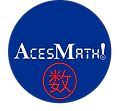TOK 2023 - (More) commentaries on questions
- loocheewee84

- Mar 5, 2023
- 3 min read
Updated: Mar 16, 2023
Below are comments and advice on 2023 TOK essay questions from our tutor Ashleigh Hearn (Class of Hwa Chong International 2021)!
About Ashleigh:
She graduated with a score of 43 and scored straight As for all her English assignments and exams throughout her IB journey (needless to say, she topped the cohort for English Lang & Lit and yes she is also our English tutor).
She has tutoring, mentoring experience in advising her peers during her years in HCIS. Her greatest strength lies in the fact that she does not just give you her (close to perfect) answer but seek to build a bridge between your current work and the best state you can be in.
TOK ideas
Qn1 Are facts alone enough to prove a claim? Discuss with reference to any two areas of knowledge
Potential areas of knowledge to consider are history and natural science. In natural science, research needs to be verified and ascertained in order to prove a claim. Whereas in history, other sources are required like “eye-witness accounts” which contribute to “proving a claim”. Hence a contrast is struck.
Qn 2 If “the mathematician's patterns, like the painter’s and the poet’s, must be beautiful” how might this impact the production of knowledge
It is important to define what is “beautiful mathematics”. Is it about a simple formula that everyone can understand, apply and is well grounded? Also consider “subjectivity” : what is beautiful to one is not beautiful to another.
Mathematics; by forcing mathematics to be beautiful, would restrict knowledge production as learners would be afraid to make mistakes or ‘make it ugly’.
Arts; it is hard to determine what is beautiful as art is subjective. The statement implies that art must always be beautiful which is also restrictive on knowledge production as they are aiming the fulfill an unrealistic expectation
Qn 3 In the acquisition of knowledge, is following experts unquestioningly as dangerous as ignoring them completely?
This question makes you consider following experts just as dangerous as ignoring them. So the first argument could be “ignoring experts is more dangerous following them’ the second could be “following experts is more dangerous than ignoring them”
Human Sciences; this involves morals and social behavior. If we follow and apply what the experts say directly, we may produce knowledge that is not beneficial because human sciences don't follow a hard and fast rule. Moreover, human sciences varies widely and it is hard to completely agree with studies as their findings cannot be generalised
Natural Science; ignoring experts can often be dangerous as they have a wealth of knowledge in this field and not following them could have negative consequences e.g. inhaling carbon monoxide. However, if we don't ignore them, perhaps you may be unable to make discoveries that prove them wrong
Qn 4 Is it problematic that knowledge is so often shaped by the values of those who produce it?
Potential areas of knowledge are The arts/ Religious Knowledge System
Ethics; are moral principles that govern a person’s behavior. These are usually constructed by groups within a society and evolve over time to suit cultural shifts and changes.
Religious Knowledge Systems; knowledge produced here is also influenced by a group of people with a shared bank of values, so their values are likely to rub off on knowledge produced in RKS as they may interpret the knowledge in different ways. At times this cannot be applied to different cultures which then leads people to believe that religion does not suit their values
Qn 5 Is it always the case that ‘the world isn't just the way it is, it is how we understand it - and in understanding something, we bring something to it’
History; In the case of history, when understanding it, we can bring our own experiences and values and apply it to what we've learnt. History also has many lessons and knowledge to be gained so when we understand it, we can avoid making the same eros.
Natural Sciences; sciences is “just the way it is” it is based on facts and figures that have been researched and proved accurate. In the aspect of understanding, one does not always bring something to it since it is already proven.
Hence there is a contrast between the two
Qn 6 Faced with a vast amount of information, how do we select what is significant for the acquisition of knowledge? Discuss with reference to the natural sciences and one other area of knowledge
Natural Sciences; in this AOK, one does not need to know all the information available, rather, ones that are necessary for understanding the scientific world; the real world and to help knowers from staying out of harm's way.
Ethics; in this AOK, when selecting significant information to acquire, one must consider how it can be applicable to their lives, whether it suits the culture/society they live in. Also, when handling different situations, the knower needs to be able to select the correct information to apply so that they can acquire relevant knowledge in the process
.png)


Comments